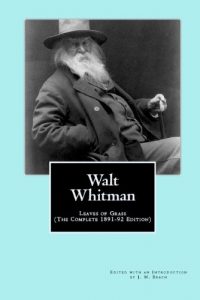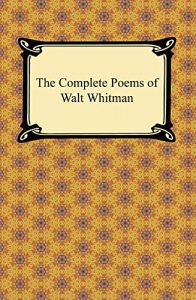Includes original introductory essay on Walt Whitman and his 19th century social and political environment by J. M. Beach. Also includes extensive bibliographical notes on Whitman and scholarship on his life and works.
Walt Whitman was a poetic Visionary. He published the first edition of this monumental work in 1855 and began his magnum opus with the words, "America does not repel the past of what it has produced." He asserted in his declaration: America is "essentially the greatest poem." And he qualified this remark by stating that the "genius of the United States," that which is at the core, the essence of the poem of America, is "always most in the common people." Whitman wrote for and about the common people, and wanted his work to somehow bring about a political renewal that would truly represent the grand Idea of democracy. In this book Whitman overturns centuries of Western political and social thought. Whitman's democratic vision was something so unprecedented in so many ways that his reception at first could be characterized as utter incomprehension. It is believed that only a couple hundred people, at most, read the original 1855 edition of Leaves of Grass and many of these readers did not know what to make of the book. Some people were completely outraged and offended. Others were enraptured. Whitman was the self appointed poet-prophet of America and created, where he saw a lack, a new democratic religious understanding for the modern world.
Walt Whitman was a poetic Visionary. He published the first edition of this monumental work in 1855 and began his magnum opus with the words, "America does not repel the past of what it has produced." He asserted in his declaration: America is "essentially the greatest poem." And he qualified this remark by stating that the "genius of the United States," that which is at the core, the essence of the poem of America, is "always most in the common people." Whitman wrote for and about the common people, and wanted his work to somehow bring about a political renewal that would truly represent the grand Idea of democracy. In this book Whitman overturns centuries of Western political and social thought. Whitman's democratic vision was something so unprecedented in so many ways that his reception at first could be characterized as utter incomprehension. It is believed that only a couple hundred people, at most, read the original 1855 edition of Leaves of Grass and many of these readers did not know what to make of the book. Some people were completely outraged and offended. Others were enraptured. Whitman was the self appointed poet-prophet of America and created, where he saw a lack, a new democratic religious understanding for the modern world.












